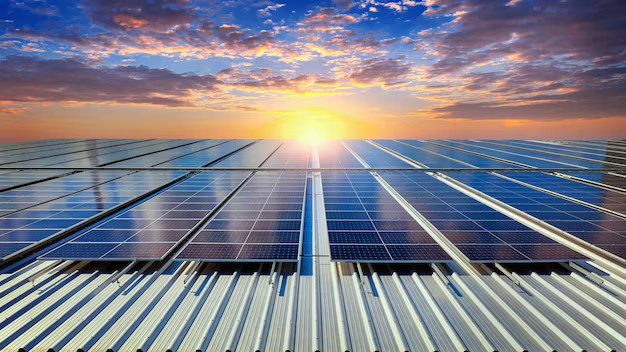Advantages and Disadvantages of Solar Energy
Solar Panel Manufacturers in Ahmedabad
Solar Panel Manufacturers in Ahmedabad | Solar Rooftop Company
Solar energy is a type of renewable energy generated from the sun’s rays. This is one of the cleanest forms of energy available, and it can be harnessed using different technologies like solar panels, solar thermal systems as well as concentrated solar power systems. It is also a more widely available resource compared to fossil fuels and thus it serves as an alternative source for them.
How Does Solar Energy Work and Its Uses
In most cases, sunlight is converted into electrical energy through photovoltaic (PV) cells or simply solar panels which comprise these PV cells as parts. They consist of semiconductors which when integrated with other devices may produce an electric current when exposed to sun rays. Electricity generated by solar panels has been used in many homes, business enterprises, and industries reducing grid connectivity and minimizing carbon emissions.
Grace Renewable is Top Solar EPC Provider Company in India
There are multiple uses for this kind of power such as:
– Generating electricity
– Heating water
– Air conditioning and heating spaces
– Cooking food
– Agriculture among others
Types of Solar Technologies
Different solar technologies have different applications including:
Photovoltaic (PV) Systems
Residential and commercial use is mostly through photovoltaic systems that transform sunlight into electrical energy utilizing solar panels.
Thermal Systems with Solar Energy
Buildings have been heated by thermal systems using solar energy to warm either the water in there or the air inside. This kind of technology is predominantly applied in heating water for various purposes, space heating as well as cooling.
Systems based on Concentrated Solar Power
In concentrated solar power systems (CSP), mirrors or lenses focus sunlight on a receiver to generate heat that can be converted into electricity. Most commonly, these plants are utilized for large scale power generation.
Heaters for Waters Through Solar Energy
Sunshine heats up the water used in residential premises by solar swimming pools. These systems are cost effective and have energy efficiency compared with standard water heaters.
Cookers Run by Solar Energy
Solar cookers generally utilize sunlight to prepare meals thus preventing fossil fuel overdependence and minimizing greenhouse gas emissions.
Advantages of Solar Power
Renewable Sources of Energy
Solar energy is considered a renewable source; hence it’s never depleted and will always remain available since there will always be sunlight.
Non-Pollutant Power Generation
One major advantage of solar power is that it generates electricity without any pollution or greenhouse gasses which enhances climate change effects.
Little Maintenance Requirements
In comparison to conventional appliances such as refrigerators, solar panels require less maintenance and they can serve for over 30 years.
Self-Sufficiency in Terms of Power Supply
You do not need to rely on other’s grids when you produce your electricity using solar energy this brings about self-sufficiency through freedom from external supply sources.
Cost-Effective
As time goes by, the cost of solar panels has dropped tremendously thus making them an affordable choice for both homeowners and businesses.
Government Incentives
Several governments provide incentives and tax credits for solar energy investments to individuals and companies.
Increased Property Value
The installation of solar panels on your property can result in an increased sale value hence making it more appealing to prospective buyers.
Job Creation
New job openings are being created by the solar industry in manufacturing, installation, and maintenance.
Energy Security
Solar energy provides energy security, especially in remote or off-grid locations.
Disadvantages of Solar Energy
Intermittent Energy Source
The solar power is intermittent meaning it may not always be available (for instance during nights or cloudy periods).
High Upfront Costs
Though prices for solar panels have gone down, their initial installation costs often stay too high for many individuals and businesses.
Space Requirements
A large amount of space is required by solar panels; therefore they can pose a challenge in cities or regions with limited land area.
Energy Storage
Solar energy storage solutions are still under development making it hard to store surplus power generated during the day when sunlight is strong enough for use when sun rays are low.
Technological Constraints
Although there have been various improvements in this technology, it is less reliable than other traditional energy sources that utilize fossil fuels.
Dependence on Weather
Clouds don’t only mask our view of the sun; they also block its light from reaching solar panels. They end up reducing the amount of electricity generated by these panels.

